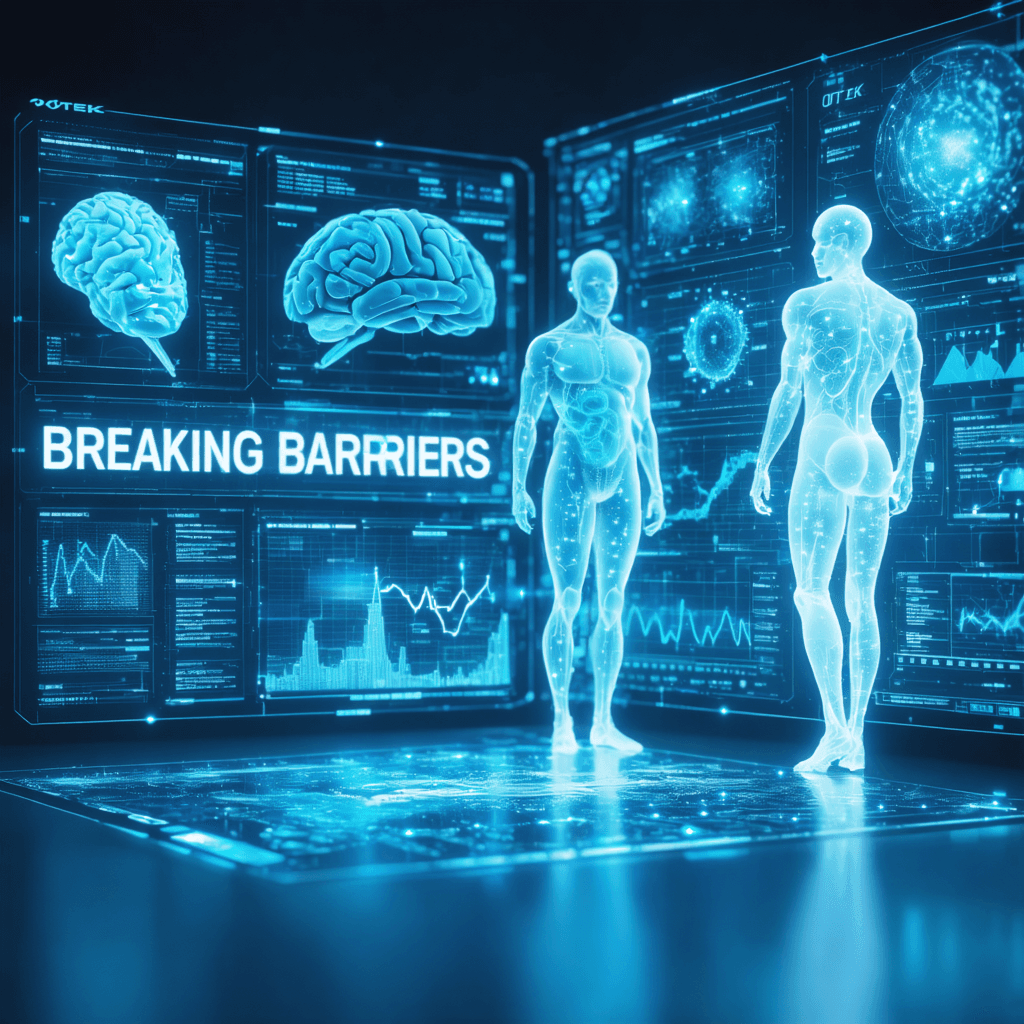AI in Healthcare: Breaking Bias Barriers During Global Crisis to Ensure Equal Access for All
In the wake of global health crises, artificial intelligence has emerged as a transformative force in healthcare delivery, but its true potential lies in addressing one of medicine's most persistent challenges: healthcare disparities. As we navigate through 2025, AI solutions are actively dismantling barriers to equal healthcare access while simultaneously tackling inherent biases in medical systems worldwide.
The Current Landscape of Healthcare Inequality
Recent studies show that healthcare disparities continue to affect millions globally, with marginalized communities facing disproportionate challenges in accessing quality medical care. According to the World Health Organization's 2024 report, over 40% of the global population still lacks access to essential healthcare services, with technological barriers and systemic biases playing significant roles in this disparity.
AI as an Equalizer in Healthcare Delivery
Artificial intelligence is revolutionizing healthcare accessibility through several key innovations:
1. Remote Diagnostics and Monitoring
AI-powered telemedicine platforms have demonstrated remarkable success in reaching underserved populations. Advanced diagnostic algorithms can now:
- Analyze medical images with 95% accuracy
- Provide real-time health monitoring through smartphone applications
- Deliver preliminary diagnoses in multiple languages
- Enable remote consultations in areas with limited medical infrastructure
2. Bias Detection and Correction
Machine learning systems are now equipped with sophisticated bias detection mechanisms that:
- Identify patterns of discrimination in medical decision-making
- Analyze treatment recommendations for potential demographic biases
- Ensure clinical trials represent diverse populations
- Standardize care protocols across different communities
3. Personalized Medicine for Diverse Populations
AI systems are advancing personalized medicine by:
- Incorporating genetic diversity in treatment plans
- Adjusting medication dosages based on population-specific data
- Predicting individual patient responses to treatments
- Considering cultural and environmental factors in healthcare decisions
Breaking Down Language and Cultural Barriers
Modern AI solutions are dismantling communication barriers through:
- Real-time medical translation services
- Culturally adaptive health education materials
- Context-aware communication protocols
- Multilingual chatbots for patient support
Cost Reduction and Resource Optimization
AI technologies are making healthcare more affordable by:
- Automating administrative tasks
- Optimizing resource allocation in hospitals
- Reducing diagnostic errors and unnecessary procedures
- Enabling preventive care through early detection
Ethical Considerations and Challenges
While AI presents tremendous opportunities, several challenges require ongoing attention:
Data Privacy and Security
- Implementing robust data protection measures
- Ensuring patient confidentiality across digital platforms
- Maintaining transparent data usage policies
- Protecting sensitive health information from cyber threats
Algorithm Transparency
- Developing explainable AI systems
- Regular auditing of AI decisions
- Documentation of training data sources
- Clear communication of AI limitations
Success Stories and Implementation
Recent implementations have shown promising results:
- Rural Health Initiative: AI-powered mobile clinics in developing regions have increased healthcare access by 60%
- Urban Care Networks: Smart hospital systems have reduced wait times by 45% while improving diagnostic accuracy
- Global Health Monitoring: Early warning systems have helped prevent disease outbreaks through pattern recognition
Future Directions and Opportunities
The healthcare industry is positioning itself for further AI integration through:
- Enhanced predictive analytics for population health
- Advanced robotics for medical procedures
- Improved genetic analysis for personalized treatment
- Expanded telemedicine capabilities
Recommendations for Healthcare Organizations
To effectively implement AI solutions while maintaining equity:
- Invest in diverse data sets for AI training
- Establish clear ethical guidelines for AI deployment
- Engage community stakeholders in implementation planning
- Provide comprehensive staff training on AI systems
- Regular assessment of AI impact on healthcare outcomes
The Role of Policy and Regulation
Effective implementation requires:
- Clear regulatory frameworks for AI in healthcare
- Standards for algorithm validation
- Guidelines for ethical AI deployment
- Protection of patient rights and privacy
Building an Inclusive Future
The integration of AI in healthcare represents a unique opportunity to address long-standing inequities in medical care. By carefully considering ethical implications and actively working to eliminate biases, we can create a more equitable healthcare system that serves all members of society.
Measuring Success
Key performance indicators for AI healthcare initiatives should include:
- Accessibility metrics across different demographics
- Patient outcome improvements
- Cost reduction measurements
- User satisfaction scores
- Bias reduction statistics
The journey toward equitable healthcare through AI is ongoing, but the progress made thus far is encouraging. By maintaining focus on inclusive development and ethical implementation, we can ensure that artificial intelligence serves as a powerful tool for healthcare equality.
Ready to be part of the healthcare revolution? Explore comprehensive AI in Healthcare courses and certification programs at 01TEK. Our expert-led training programs will equip you with the skills needed to implement ethical and effective AI solutions in healthcare settings. Visit 01TEK's Healthcare AI Program to begin your journey toward transforming healthcare delivery.
Join us in building a future where quality healthcare is accessible to all through responsible AI implementation. Together, we can break down barriers and create lasting positive change in global healthcare delivery.
Don’t be trapped by dogma
which is living with the results of other people’s thinking.”



